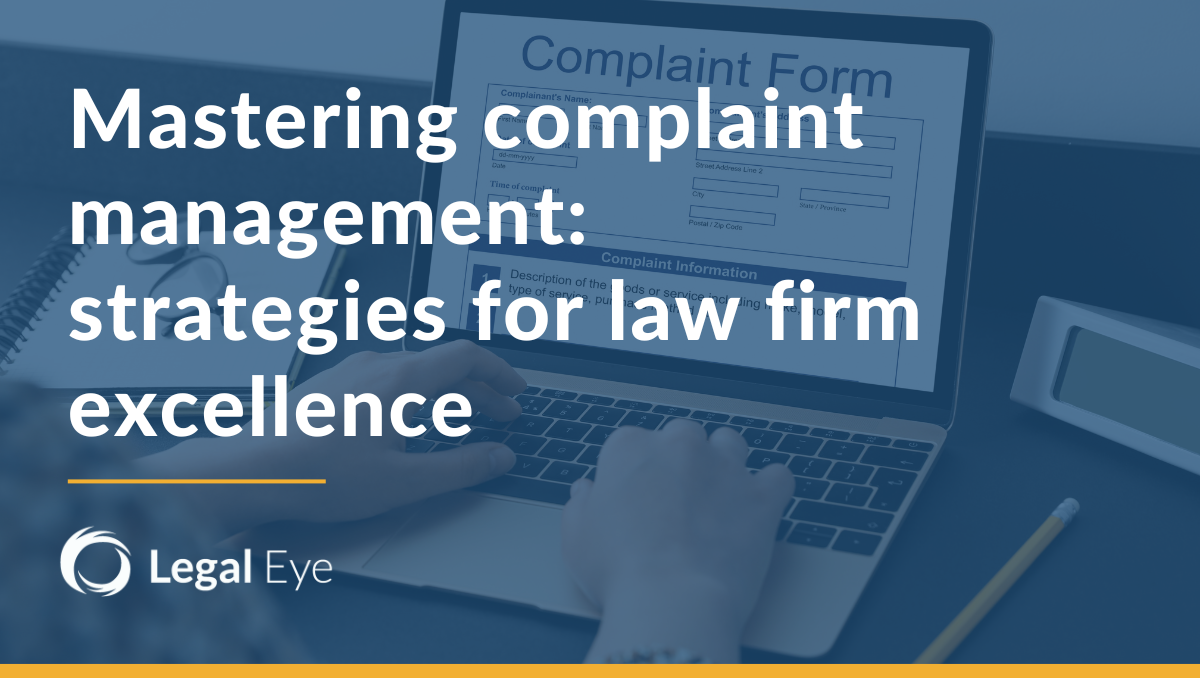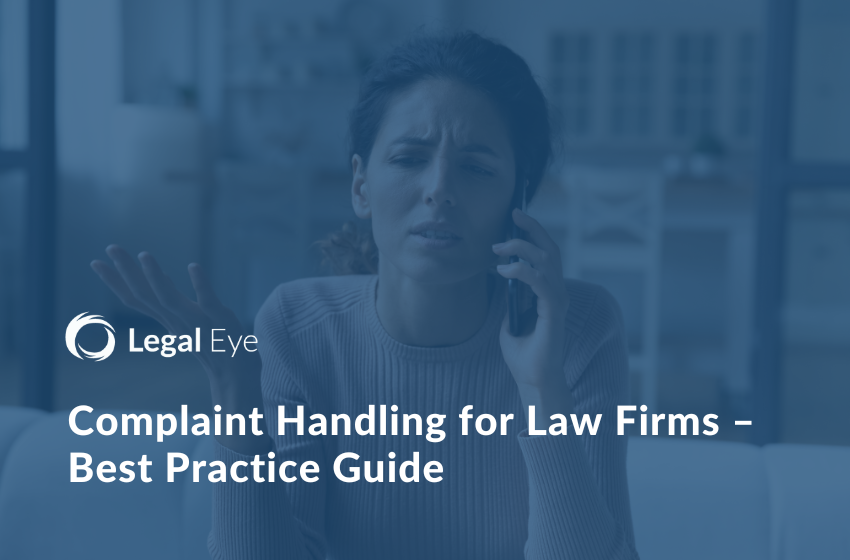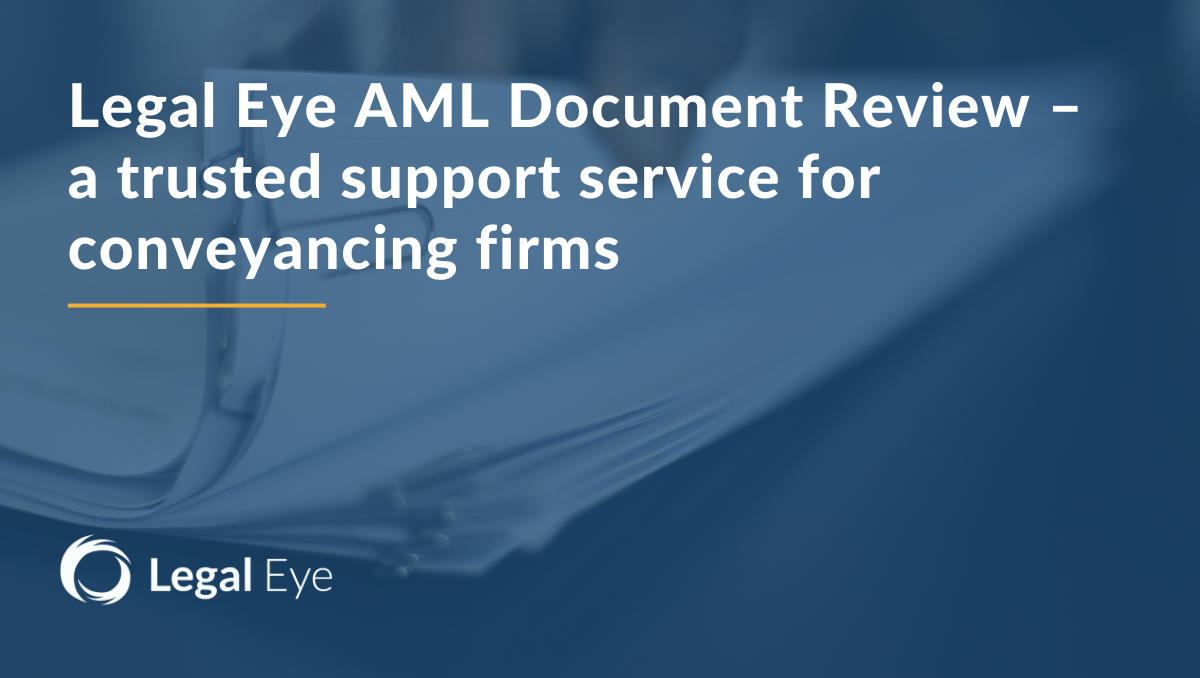The Conveyancing Association (CA), the leading representative body for the conveyancing industry, has today (16th…
Regardless of your law firm’s dedication to delivering excellent client service, occasional complaints are inevitable. When a grievance is made, a prompt and effective response defuses the situation, safeguards your firm’s reputation, and reduces the chances of future complaints. Here are some tips to help you navigate such instances skilfully, and compliantly.
Keep up to date with the latest LeO rules
The Legal Ombudsman (LeO) resolves complaints between law firms and unhappy clients. Following a review in 2022, the LeO revised its Scheme Rules to make the complaints handling process swifter and more efficient. From 1 April 2023:
- The time limit for bringing a complaint is no later than one year from the date of the act or omission being complained about; or one year from the date when the complainant should have realised that there was cause for complaint.
- Additional circumstances in which the LeO can dismiss or discontinue a case were introduced. These are:
- Where the LeO is satisfied that the complainant has not suffered “significant” loss, distress, inconvenience or detriment
- Where the size or complexity of the complaint, or the behaviour of the complainant, results in the complaint requiring a disproportionate use of the LeO’s resources
- Where there has been an undue delay in bringing the complaint
- Where the law firm has made a reasonable offer to resolve the matter, and that offer was accepted by the complainant prior to them referring their complaint to the LeO
- The LeO has the discretion to decline to issue an ombudsman decision if no substantive comments are provided in response to an investigator’s case decision.
Solicitors and law firms were required to update their complaints process following these changes. They were also required to communicate the changes to the time limits to their clients before the 1 April deadline. Other documents that law firms needed to update to reflect the changes included client care information, terms of business, relevant information on their websites, and anything else that outlined when a complaint could be taken to the Ombudsman.
Make sure clients know how to complain
No law firm wants to receive complaints, but making it hard for clients to do so only builds frustration and escalates dissatisfaction. So, ensure your complaints policy is accessible and easy to understand. This isn’t just good practice; it’s a legal requirement for firms to have a written complaints procedure. Firms must also tell their clients about their complaint’s procedure and about the client’s right to complain to the LeO.
As of January 22nd, 2024, the Legal Ombudsman has a new postal address. Please ensure that you update all references to the Legal Ombudsman’s address in your:
- Client Correspondence
- Complaints Procedures
- Office Manual (if cited)
- Online Information (websites, social media)
The new address is Legal Ombudsman, PO Box 6167, Slough SL1 0EH.
A redirection for mail sent to the old PO Box address will be in place until April 16, 2024. After this date, mail sent to the old address won’t reach the Legal Ombudsman.
Don’t let complaints fester
Paragraph 8.5 of the SRA Code of Conduct requires solicitors to treat their clients fairly, and to deal with complaints “promptly, fairly, and free of charge”. Effective internal processes for dealing with complaints is a must for compliance purposes, but it also makes dealing with complaints easier.
Letting unhappy clients know their issues will be dealt with, by whom, and in what timeframe demonstrates that you are taking their complaints seriously. This can stop a bad situation becoming even worse. However, having a robust complaints process is pointless if it isn’t adhered to. As such, it is essential to train your staff so that everyone understands the procedures to follow, and knows how to quickly identify and escalate serious complaints.
Avoid getting complaints in the first place
One of the best ways to manage client complaints is to ensure your law firm doesn’t receive any in the first place. Of course, completely eradicating complaints might not be possible. Still, by proactively implementing some the following measures, you can minimise criticism and foster a more positive client experience:
- Clear communication. Establish transparent communication channels with clients from the outset. Let them know how and when they can contact you. Keep clients informed of progress and developments regularly and encourage open dialogue to address issues promptly.
- Set expectations. Give a realistic assessment of the potential outcomes and timelines at the beginning of any engagement. Avoid overpromising and, instead, strive for realistic and achievable goals. Educate clients about the legal process and potential challenges they may encounter.
- Provide effective client onboarding. Implement a thorough but straightforward client onboarding process to create a positive and informed client-solicitor relationship from the off.
- Manage the relationship throughout. Continuously manage and adjust client expectations as the case progresses. Proactively address any potential issues before they escalate.
- Ensure quality service delivery. Strive for excellence in service delivery to meet or exceed client expectations. Regularly evaluate and enhance internal processes to maintain high-quality standards and invest in ongoing training for your team to ensure everyone stays updated on the latest legal practices and regulations.
- Provide the opportunity for feedback. Establish a feedback mechanism to gauge client satisfaction and identify areas for improvement. Act on feedback to enhance your firm’s services and prevent recurring issues.
Outsource to ensure complaint handling best practice
Handling complaints effectively is a skill, and it’s not unusual for a complaint to feel like an unfair attack, the key is to keep the emotion out of the process. Keeping up with the latest rules is also tricky, as when changes are made, it can impact more than just your internal complaints handling policy. In response, more and more firms are chooosing to outsource the process.
Whether you want an independent review of your client complaints process to ensure your firm is 100% compliant, a tool kit to help you manage grievances effectively, training for your team, or someone to look after the whole process for you, Legal Eye provides an entirely flexible, independent, and methodical approach to complaint resolution.
Contact bestpractice@legal-eye.co.uk for further details.




